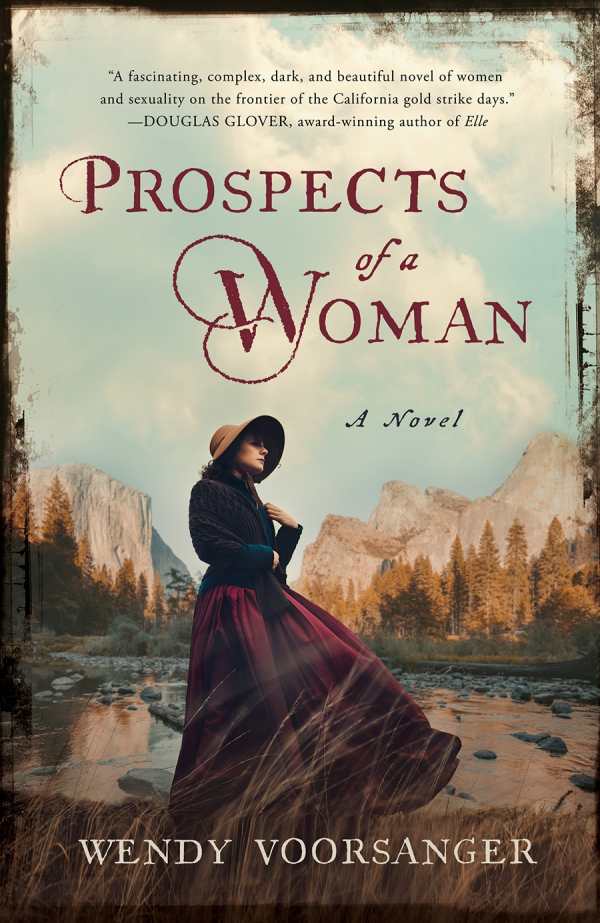Prospects of a Woman
In Wendy Voorsanger’s novel Prospects of a Woman, a woman travels to Gold Rush California, where her New England upbringing, femininity, and traditional role are challenged.
In California, Elisabeth and her husband Nate discover that food and money are scarce. Despite rumors of California being a new version of the promised land, digging for gold is arduous and time consuming. They work alongside numerous other prospectors who are also hoping to stake their claims. Further, Nate is acting distant and detached; Elisabeth realizes that her romantic relationship is troubled.
Elisabeth takes a step toward entrepreneurship after reading Ralph Waldo Emerson’s essay “Self-Reliance” to a group of leering, prospecting men. More entranced by the rare sight of a woman at their camp than by Emerson’s words, one of the men pays Elisabeth for her efforts. She offers to mend their tattered clothes. Elisabeth develops her talents and supports herself by sewing, hunting, bookselling, engraving, and writing for a San Francisco newspaper.
Elisabeth is a strong, resolute character, yet not without passion and vulnerability. Her marital troubles lead her to an intense affair with charismatic Nemacio, a native Californio of Spanish descent. And Elisabeth’s correspondence with Louisa May Alcott, her friend from Massachusetts, at first depicts a romanticized, ideal life—all untrue, but indicative of secret yearnings.
As Elisabeth drifts further away from Nate, she is surprised to learn that California law is less restrictive than New England law: it allows women to seek divorces, own property, and start businesses. She develops friendships with other enterprising women, and her harsh and haggard fortunes become more prosperous.
Alive with historical details, intriguing characters, and resplendent natural beauty, Prospects of a Woman is a lusty, intelligent, and captivating portrait of a woman and of early California.
Reviewed by
Meg Nola
Disclosure: This article is not an endorsement, but a review. The publisher of this book provided free copies of the book to have their book reviewed by a professional reviewer. No fee was paid by the publisher for this review. Foreword Reviews only recommends books that we love. Foreword Magazine, Inc. is disclosing this in accordance with the Federal Trade Commission’s 16 CFR, Part 255.

